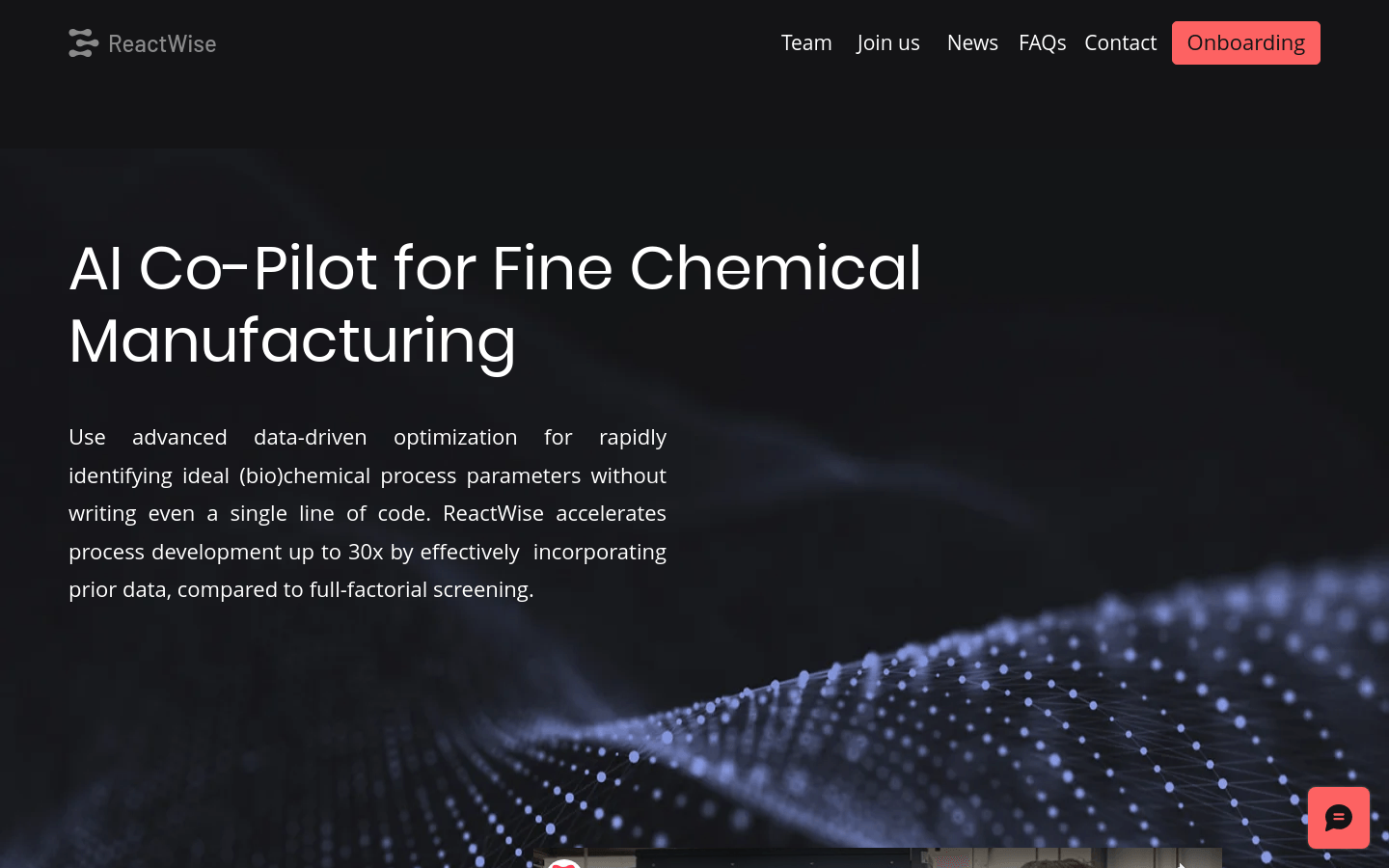

Reactwise
Overview :
ReactWise is a platform that uses advanced data-driven optimization techniques to provide AI-assisted optimization of chemical process parameters in the fine chemicals industry. It effectively integrates historical data, allowing users to quickly identify ideal (bio)chemical process parameters without any coding, accelerating process development by up to 30 times. Built by researchers for researchers, the platform supports advanced technologies such as multi-task learning and closed-loop machine learning optimization, aimed at advancing research and applications in the chemical field.
Target Users :
ReactWise is primarily aimed at chemistry researchers, drug development professionals, and engineers in the fine chemicals sector. It utilizes advanced data analysis and machine learning techniques to help users optimize chemical synthesis processes, enhance experimental efficiency, reduce research and development costs, and accelerate the development of new drugs and materials.
Use Cases
Use ReactWise to optimize C-H bond functionalization in drug synthesis
Utilize ReactWise for automated pH adjustments to enhance the stability of buffer solutions in biological systems
Predict the proto-deboronation rate in the Suzuki reaction using ReactWise to avoid side reactions
Features
Optimize chemical process parameters without the need for coding
Effectively integrate historical data to accelerate process development
Support multi-task learning to enhance optimization efficiency
Implement closed-loop machine learning optimization for automated processes
Provide customizable and reproducible reaction data processing solutions
Predict reaction rates using quantum mechanics computations to aid chemists' decision-making
How to Use
1. Visit the ReactWise official website and register an account
2. Upload or input the chemical process data that requires optimization
3. Utilize ReactWise's AI-assisted features for parameter optimization
4. Adjust the experimental plan according to the optimization results
5. Observe the experimental outcomes and further optimize based on feedback
6. Repeat steps 3-5 until the ideal process parameters are achieved
Featured AI Tools

Elicit
Elicit is an AI assistant that analyzes research papers at super speed. It automates tedious research tasks like paper summarization, data extraction, and synthesizing research findings. Users can search for relevant papers, get one-sentence summaries, extract and organize detailed information from papers, and find themes and concepts. Elicit is highly accurate, user-friendly, and has earned the trust and praise of researchers worldwide.
Research Instruments
605.5K
Chinese Picks

Findin AI
Findin AI is a tool designed to significantly accelerate the academic research workflow through artificial intelligence technology. It aids users in efficiently managing literature and knowledge and improving research efficiency through various functions like literature filtering, reading, note-taking, thematic research, literature reviews, and scholarly writing. This product employs AI technologies such as automatic summarization, one-click reference acquisition, and literature Q&A, greatly reducing repetitive tasks in the research process, enabling researchers to focus on innovation and deep thinking.
Research Instruments
212.0K










